Pure Splendor: Where Watercolor Meets Pastel
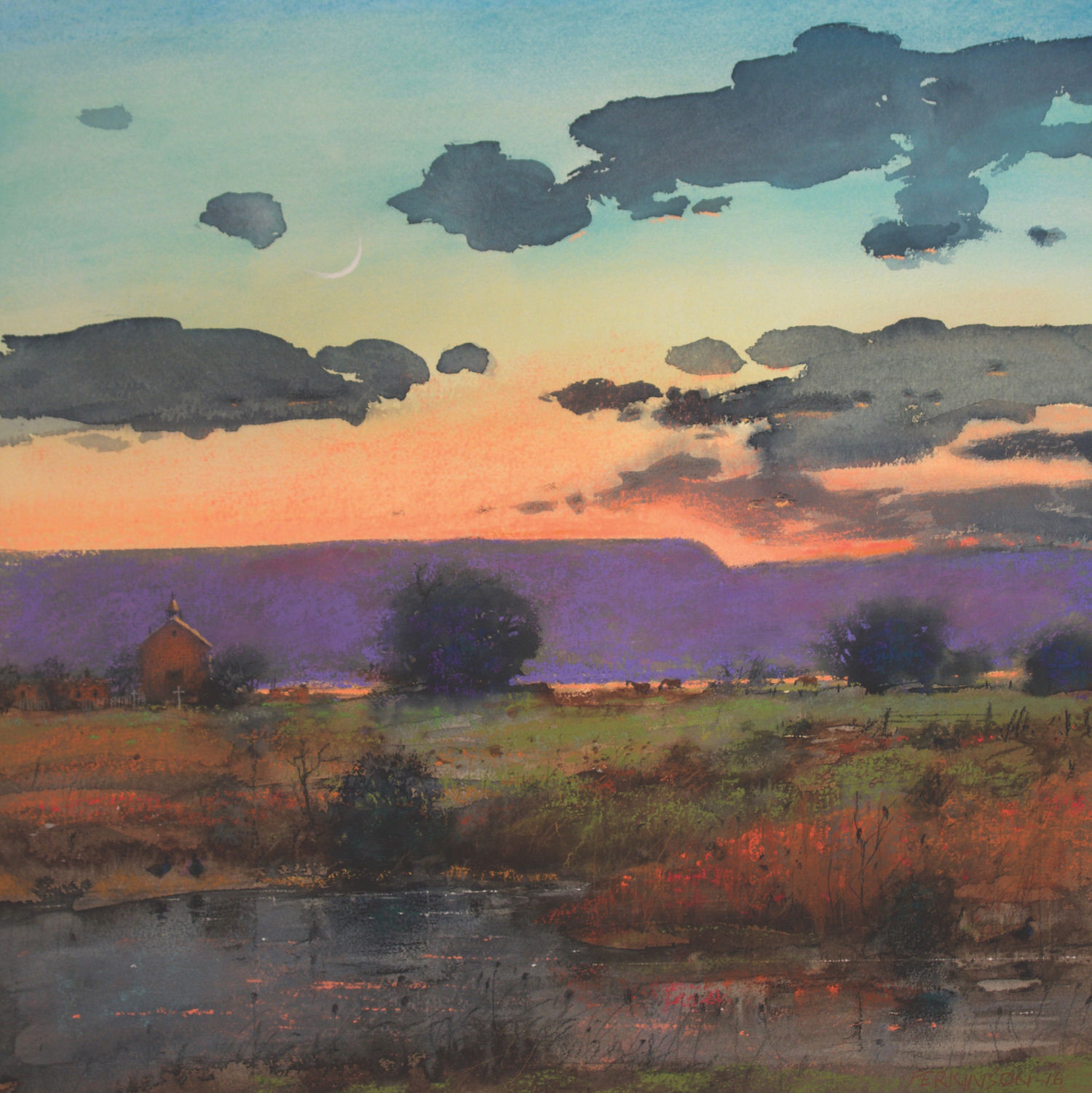

Saturated washes of watercolor are enriched with delicate applications of pastel to create active, broken color in Twilight, New Mexico by Tom Perkinson (mixed media on paper, 20×20).
Tom Perkinson has devoted his life and career to painting. Here’s what decades of that kind of devotion have yielded in terms of his unique ways of working.
Tom Perkinson and the Light-Filled Southwestern Landscape
“The Native Americans have an expression that I like,” says New Mexico-based artist Tom Perkinson. “‘Keep the top of your head open.’” It’s an invitation to be alive to experience every moment, and to be open to new possibilities and novel solutions.
It perfectly describes the outlook that Perkinson brings to his own work. Painting the ravishing landscape of New Mexico, he pushes the color to almost-otherworldly realms of saturated violets, vivid yellows and resplendent oranges. The resulting paintings revel in the transformative power of light.
An Artist’s Unique Ways
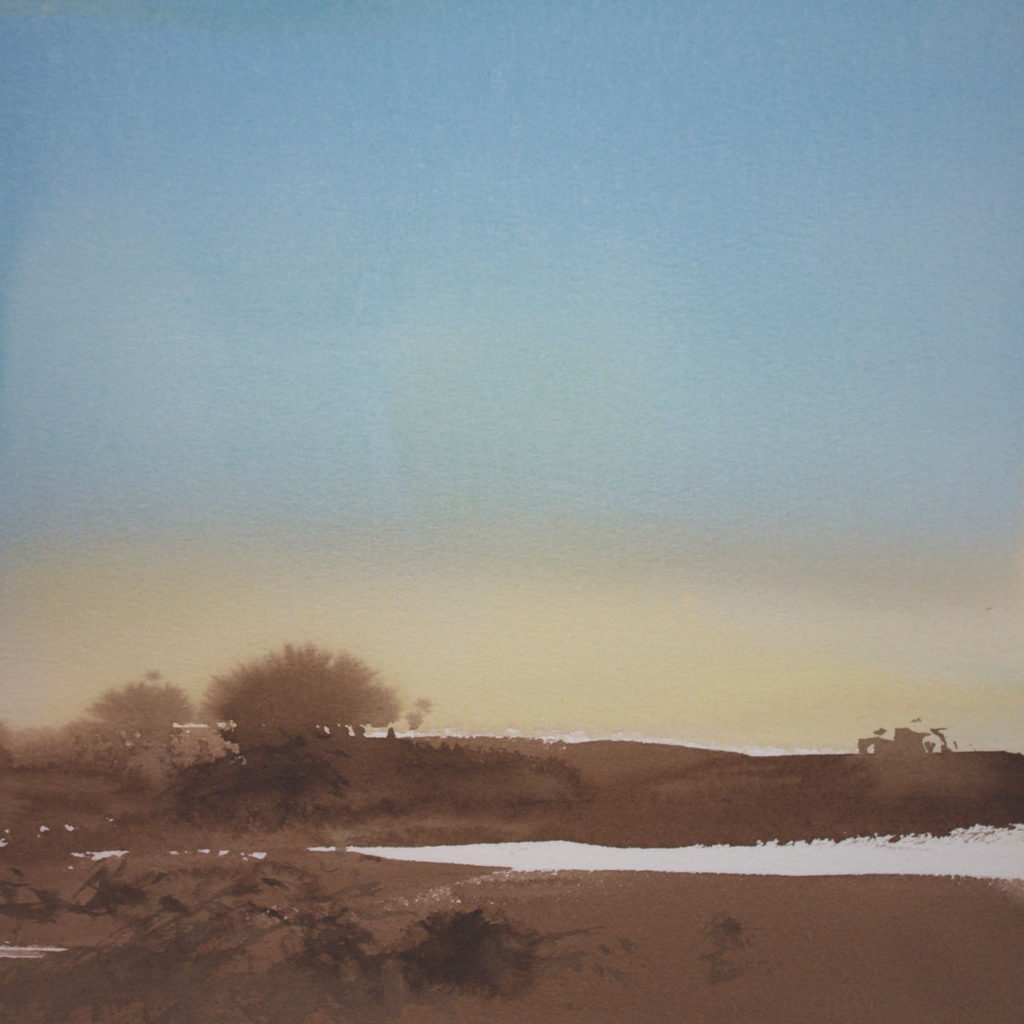
From Memory
Inspired by a climate that can present everything from the limpid clarity of high-altitude air to sudden squalls that race across the desert floor, to the delicate magic of winter snowfalls, Perkinson’s work seems to be the ultimate appreciation of one of the most visually spectacular regions in the U.S. It comes as a surprise, then, that almost all of his paintings are done from his imagination and memory.
“My color combinations aren’t in the realm of the natural world, because I don’t paint reality; I’m a painter of fiction,” he says. “I try to paint a sense of place, as though this scene really does exist.
“I have had my collectors ask me where this scene is, and I just have to point to my head and say I made it up. Thus, I think of my work as romantic realism. I’m painting a certain reality that I’ve invented, inspired by the fascinatingly rich Southwestern landscape.”
The Real Work
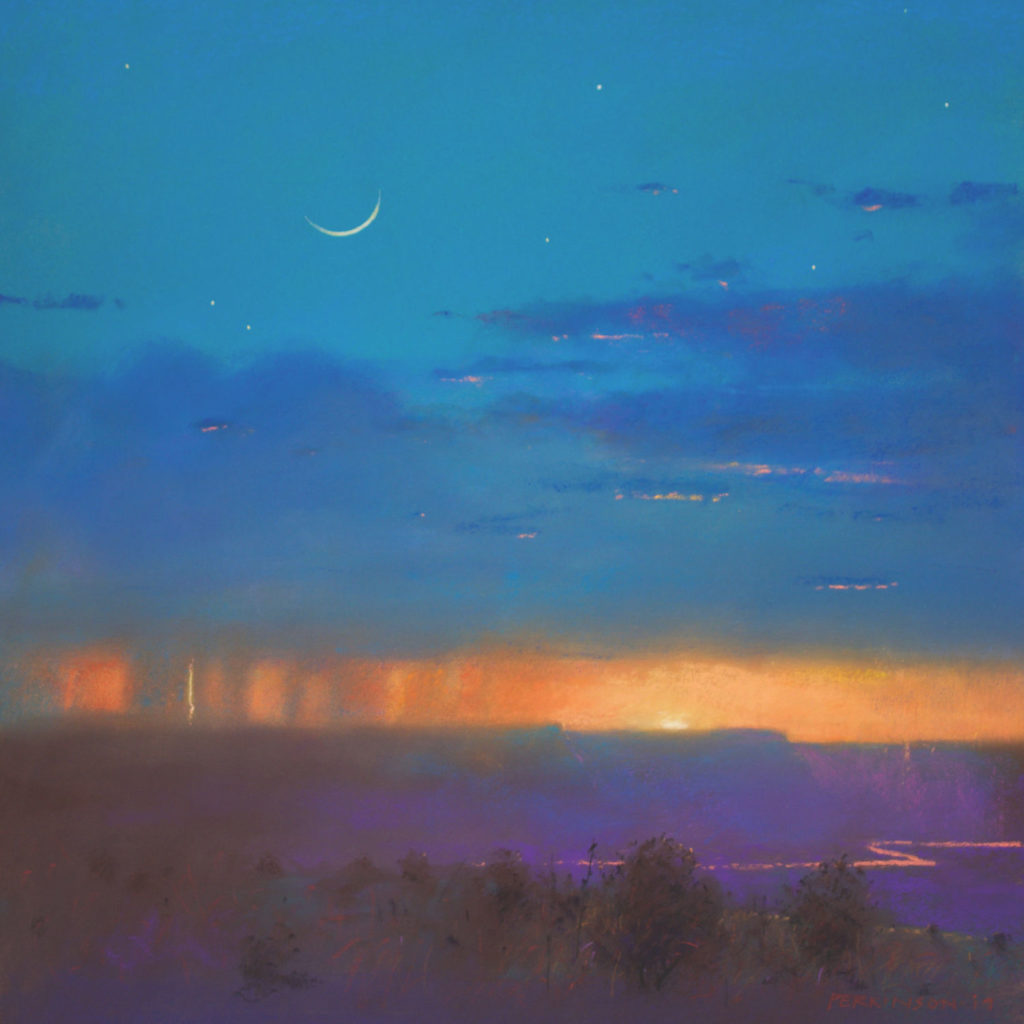
Ribbon of Light by Tom Perkinson (mixed media on paper, 16×16) pushes color to fantastic realms of blues, red-violets and oranges.
The artist notes that although viewers generally are excited by the color, he himself pays close attention to the tonal values, noting the saying: “Color gets all the credit, but it’s the values that do all the work.”
Starts with Washes
“I don’t begin with sketches, because I want to be free to follow the painting in any direction,” Perkinson says. “I start with washes of different values and tints. Then, I begin to look for a landscape. Several directions will appear to me at this time, and then I have to decide on one of them.”
The deciding is the most difficult part of the process according to the artist, so he always tries to leave himself open to changes.
Distancing Himself
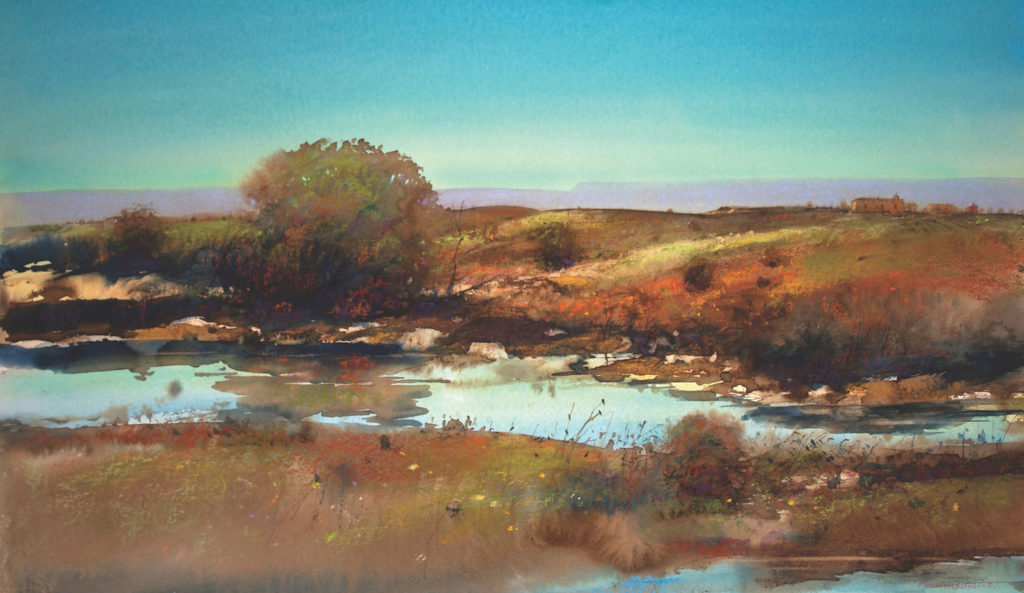
Perkinson is careful to create a variety of edges, from soft to hard, in Autumn, New Mexico (mixed media on paper, 16×28).
Once he begins to get a feeling for the developing landscape, Perkinson starts to determine a sense of scale. “During these first few moments, I must establish my distance from the scene,” he says. “Am I a mile away or just across the river? This is one of the first steps, and I have to decide before I can continue. It’s important for working out the perspective and how things are going to relate to one another in the picture. Then, as the landscape evolves, I look for more images to add to the composition.”
The Switch Over
After establishing the painting in watercolor, Perkinson lets it dry overnight and then works over it in colored pencil and pastel the next day. “The watercolor seeps into the paper while the pastel sits on the surface, which adds to the illusion of depth and space,” he says.
Perkinson uses the pastel layer to augment and dramatize the imagery that has developed in the watercolor. “I’ll often rub in certain areas and take away others,” he says. “This technique gives the painting a visual history and its own patina.”
Unique Tools

Although the color in Two Riders Along the River by Tom Perkinson (mixed media on paper, 5×10) is exaggerated, it’s modulated in a very subtle manner.
To create a variety of effects, Perkinson sometimes uses a can of compressed air that he directs through a fine tube; the air blows the pastel around or completely off the surface.
This approach allows the artist to modulate a passage, add texture or remove most of the pastel from an area. “The kind of effect I get depends on how far away I hold the can from the paper and how hard I press on the trigger,” he says. “It produces effects I just can’t get any other way.”
Perkinson also uses cardboard rolls, or stumps, both to blend and to lift pastel from one area to repeat the color in another. “It’s a really effective technique in terms of the subtlety that I can achieve,” he says.
Where Watercolor and Pastel Meet: A Demonstration from Tom Perkinson
Perkinson seamlessly marries watercolor, pastel, colored pencil and drawing ink to create a landscape rich with color and mood.
Artist’s Toolkit
PAPER
• Lanaquarelle 300-lb. cold-pressed
PAINTS
• Dr. Ph. Martin’s liquid watercolors; Winsor & Newton watercolor tubes, both gouache and regular transparent varieties
PASTELS
• Unison, Sennelier, Nupastels
MISC.
• Prismacolor colored pencils, permanent walnut drawing ink
Step 1
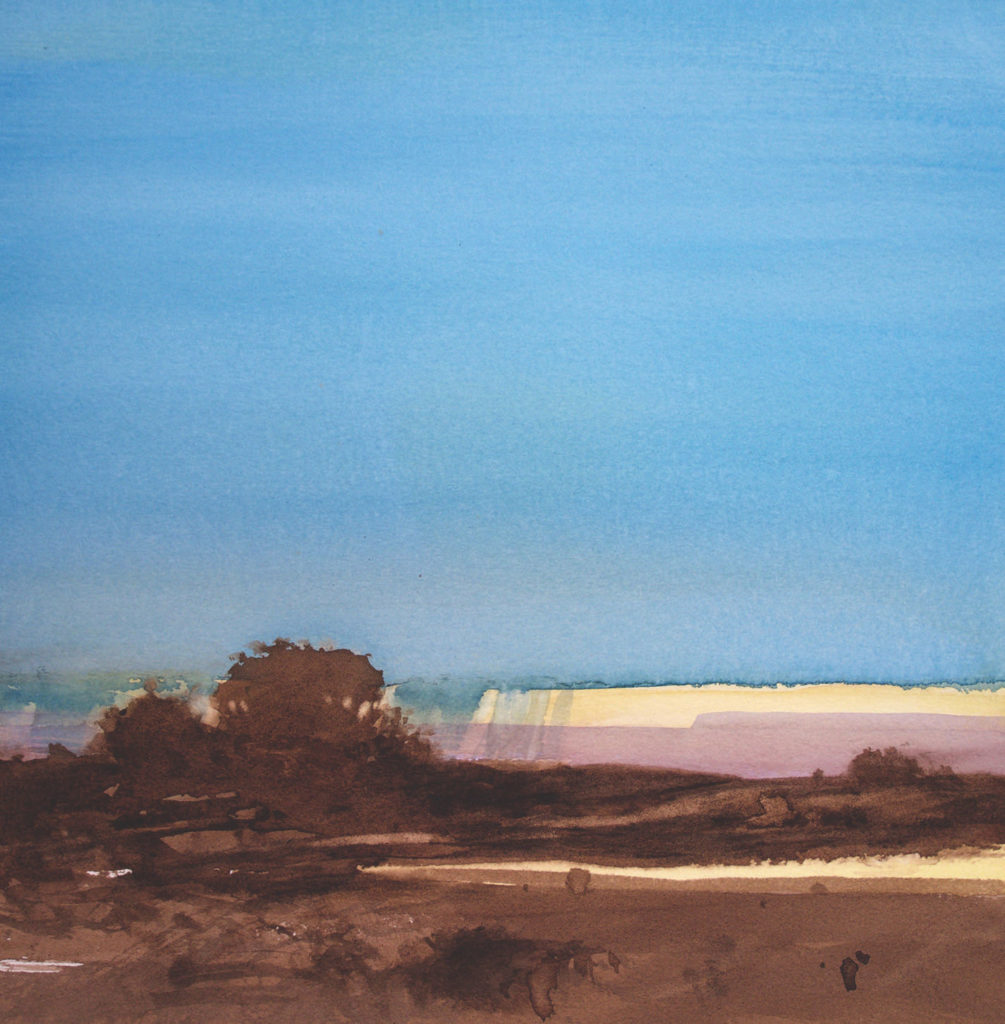
Using watercolor, I quickly applied the fundamental washes and abstract structure. I then used walnut ink in the foreground.
Step 2
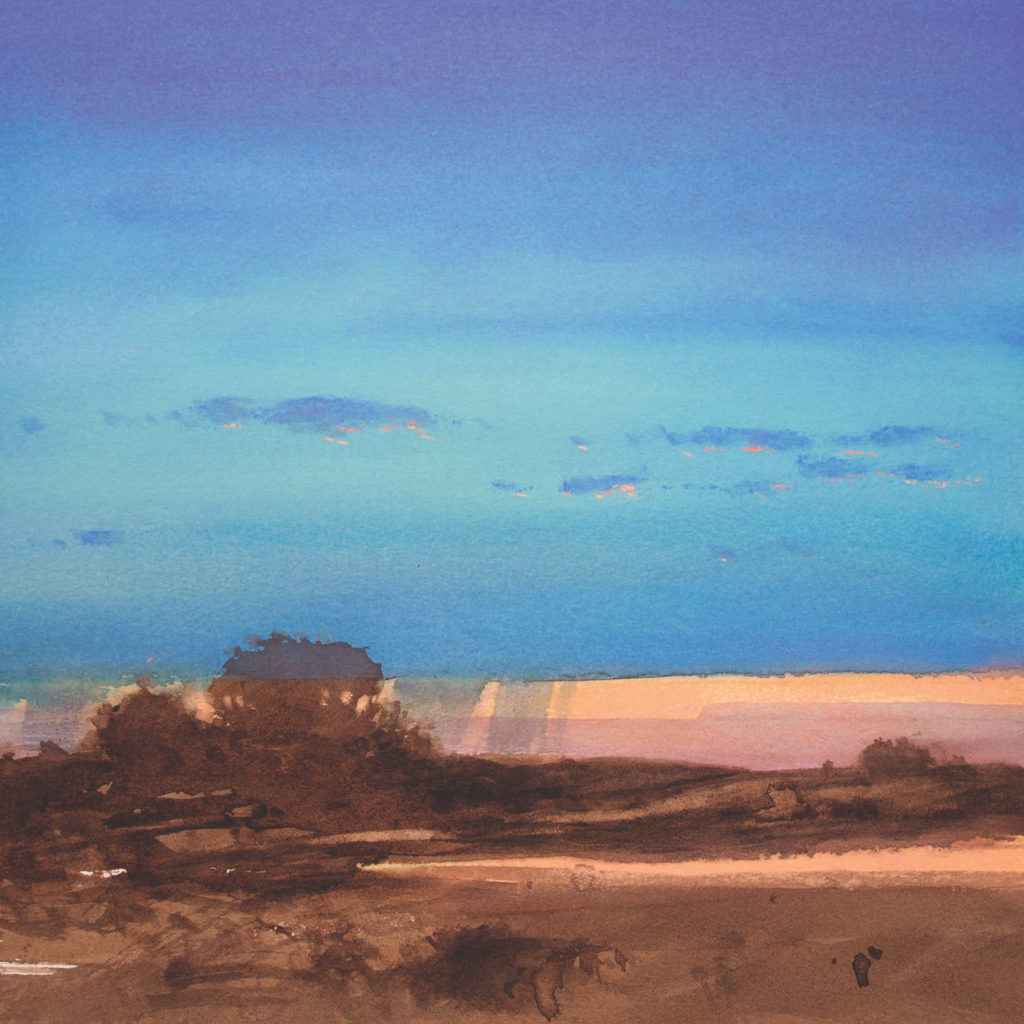
I added the rain cloud and the mountains in the background. I then darkened certain areas to push them back into space.
Step 3
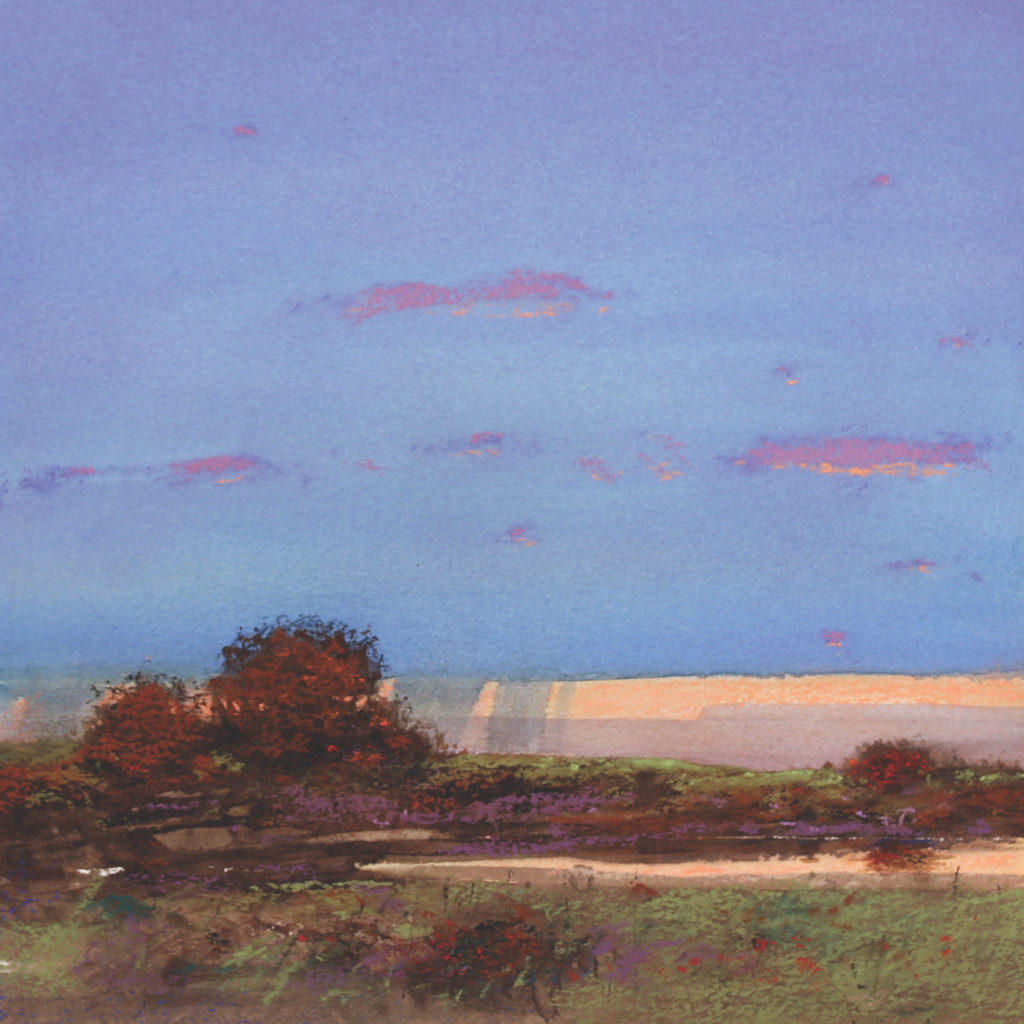
I added cloud details and more color to the sky.
Step 4
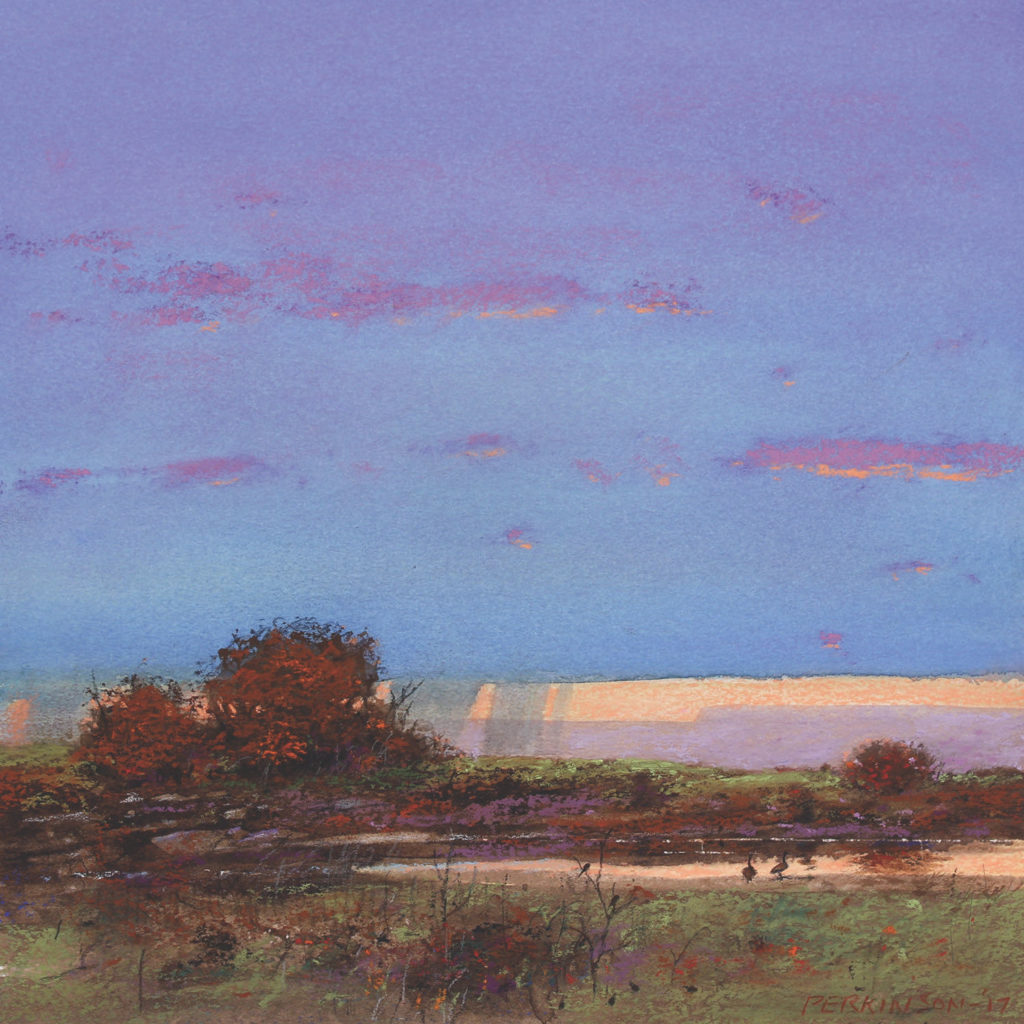
I created more details using watercolor, pastel and colored pencils, adding more vibrant color to the sky, the trees, and the background and foreground.
Step 5
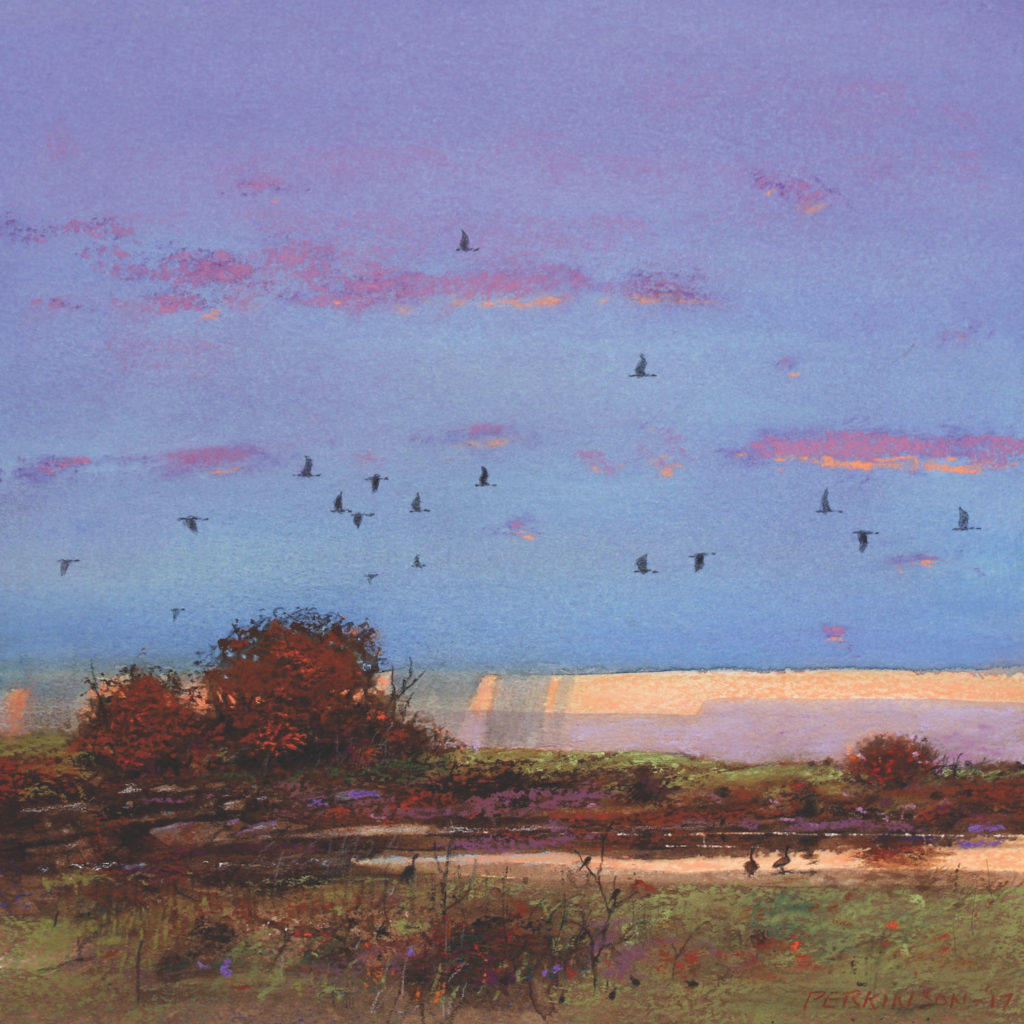
I added the two geese by the water and the red-winged blackbirds in the foreground. I worked on the large rocks under the trees on the left.
Final Step
I added one more goose near the water and painted in the flying geese in Geese in November (mixed media on paper, 10×10).
Light and Landscape
For more exciting instruction on other crucial aspects of landscapes, participate in Johannes Vloothuis’ monthly Paint Alongs.
You can watch all three sessions live alongside Johannes as he paints or at your convenience (the sessions are recorded for you!). It’s 12+ hours of creative fun on one of the most popular themes in landscape painting. Enjoy!
This is an excerpt from an article written by John A. Parks and first featured in Watercolor Artist magazine. Get your subscription to Watercolor Artist now. And learn more about Tom Perkinson by visiting his website.



Have a technical question?
Contact UsJoin the Conversation!